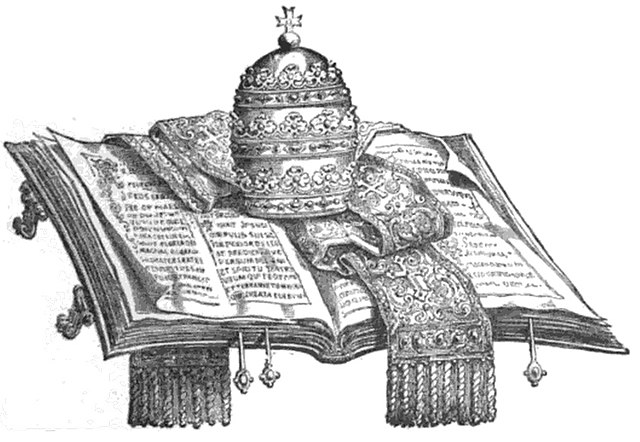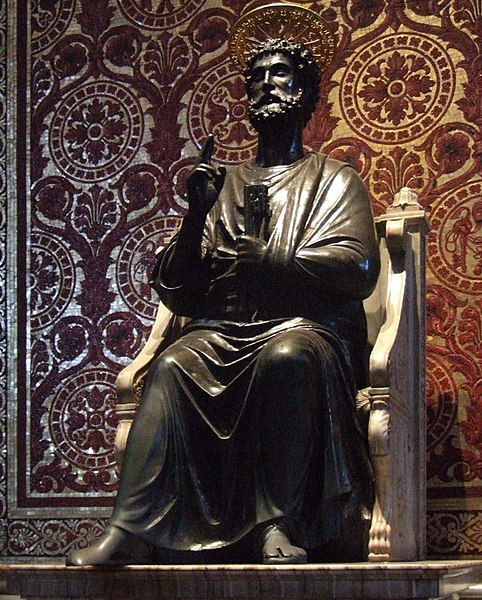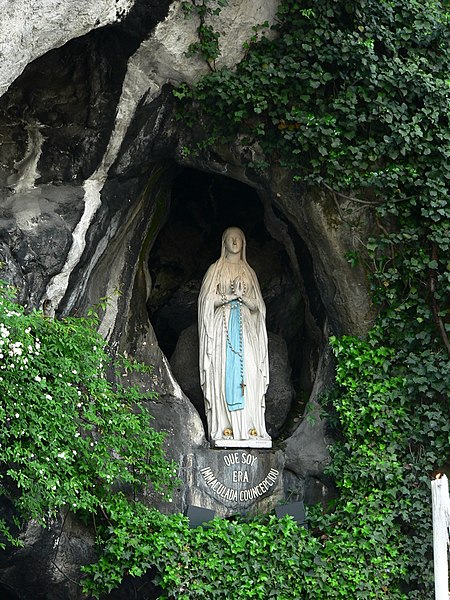Papal infallibility is a dogma of the Catholic Church which states that, in virtue of the promise of Jesus to Peter, the Pope when he speaks ex cathedra is preserved from the possibility of error on doctrine "initially given to the apostolic Church and handed down in Scripture and tradition". It does not mean that the pope cannot sin or otherwise err in some capacity, though he is prevented by the assistance of the Holy Spirit from issuing heretical teaching even in his non-infallible Magisterium, as a corollary of indefectibility. This doctrine, defined dogmatically at the First Vatican Council of 1869–1870 in the document Pastor aeternus, is claimed to have existed in medieval theology and to have been the majority opinion at the time of the Counter-Reformation.
Pope Pius IX (1846–1878), during whose papacy the doctrine of papal infallibility was dogmatically defined by the First Vatican Council
1881 illustration depicting papal infallibility
The only ex cathedra application of papal infallibility since its solemn declaration has been for the Marian Dogma of Assumption in 1950. Painting of the Assumption, Rubens, 1626
Supporters of the pope outside the United Nations in 2008 with a banner quoting Matthew 16
Dogma in the Catholic Church
A dogma of the Catholic Church is defined as "a truth revealed by God, which the magisterium of the Church declared as binding". The Catechism of the Catholic Church states:The Church's Magisterium asserts that it exercises the authority it holds from Christ to the fullest extent when it defines dogmas, that is, when it proposes, in a form obliging Catholics to an irrevocable adherence of faith, truths contained in divine Revelation or also when it proposes, in a definitive way, truths having a necessary connection with these.
Statue of Saint Peter holding the keys of the kingdom of heaven. (Gospel of Matthew (16:18–19).
The oldest surviving panel icon of Christ Pantocrator, c. 6th century.
Statue of Our Lady of Lourdes. The Lourdes apparitions occurred four years after the definition of the dogma of the Immaculate Conception.







